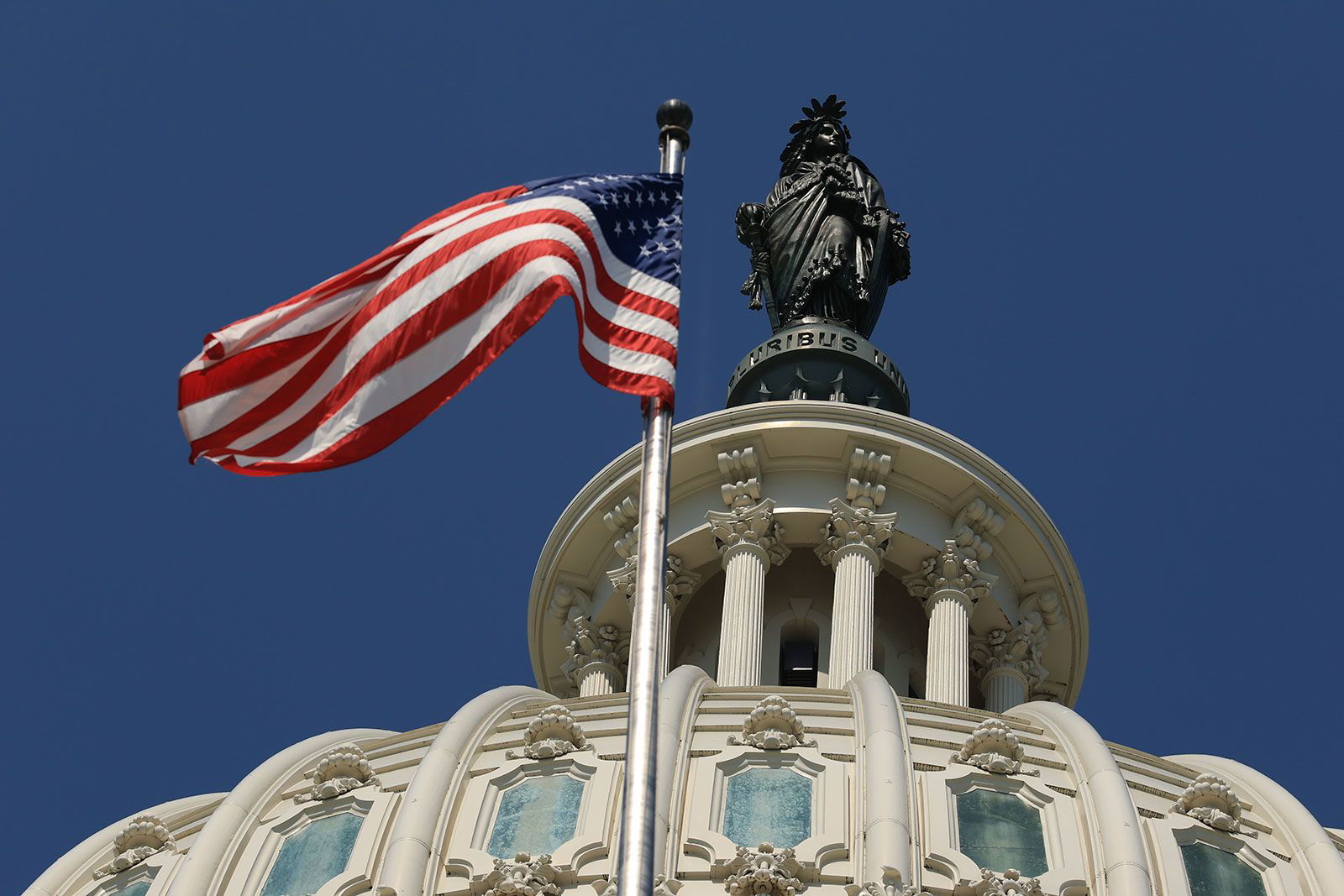Senate GOP at odds over Medicaid, other sticking points in Trump megabill amid push for vote this week

The US Capitol building in Washington DC on June 23.
By Morgan Rimmer, Lauren Fox, Manu Raju, Sarah Ferris and Ted Barrett, CNN
(CNN) — Republican senators left a Monday evening meeting pointing to several key outstanding issues that must be addressed in their sweeping domestic policy bill as Congress closes in on the July 4th recess, raising questions about whether the Senate can finish it by the end of the week.
GOP leadership has been bullish it’s still on track to bring to the floor this week, but no final decisions on the most contentious issues were solidified in the meeting, senators said.
In particular, senators pointed to remaining concerns about rural hospitals amid changes to Medicaid’s provider tax provision, as well as the state and local tax policy – a key sticking point with several House Republicans.
Sen. Josh Hawley of Missouri, who has been vocal in his support for protecting rural hospitals, said that they are still sorting out a potential provider fund option to bolster medical facilities, noting he would like to see at least $100 billion in the fund. “I don’t know if it’s enough, but that’s a very good start,” he said, noting: “We don’t have any details at all. They did not commit to that number, or any number.”
“They need to work this out. They need to address the rural hospitals’ concerns, and I think if that happens, then this bill will pass here and in the House,” he added. “It’s all a work in progress.”
Sen. Markwayne Mullin of Oklahoma, who has been the key go-between for GOP senators and House Republicans on the issue of state and local taxes, or SALT, noted that he had floated a potential solution to senators at the meeting – though he acknowledged that neither side will be truly happy with it.
A key block of House Republicans from New York and California have been pushing to retain the state and local tax provisions from the House bill, an idea that most GOP senators consider a non-starter. Mullin said that he is going to speak with those House members Monday night about the idea of keeping the cap at the House-passed $40,000, while lowering the income threshold of who would apply.
“I think we’re in a spot that neither side is going to love, but we’re in a spot,” he said. “I think we got our numbers now.”
Mullin insisted his proposal “is not going to lose any votes,” on the Senate side, “but, as I said, it’s not a joyful spot for any of us to be in.”
Sen. John Cornyn of Texas, told reporters that the main purpose of the meeting was for various committee chairmen to present what provisions of the bill had fallen out during the so-called Byrd bath, a wonky process that involves working with the Senate parliamentarian to ensure their proposals pass muster with the chamber’s byzantine budget rules. The critical review allows Republicans to move the bill with a simple majority.
Sen. John Boozman, who chairs the Senate Agriculture Committee and had several key provisions fall out of the bill after his section was scrubbed, said that they are proposing some changes to their language to appease the parliamentarian. In particular, they are extending the times states need to implement changes to the Supplemental Nutrition Assistance Program, or SNAP, as food stamps are formally known.
“What we’re trying to do is give the states more time to understand what they’re dealing with, so that they can respond,” he said, explaining the solution is nuanced. “We have good reason to believe that if we make some changes, that we can make it Byrd compliant.”
Boozman added that Senate Majority Leader John Thune is taking this and other proposed changes to the bill post-Byrd bath and trying to get the parliamentarian to agree to let them back in the package. Mullin also noted that this process is underway.
“I think a lot of our chairs were trying to rewrite it, to where it would fall inside of that [Byrd rule]. As they were saying, ‘adjust the dials’ – everybody hates that term, but that seems like to be the most common term – and get into a good landing spot,” said Mullin.
Congressional leadership has been saying since May that they want this package to pass the Senate and the House by the self-imposed deadline of July 4, and the clock is ticking with so much left to sort out.
“We’re on schedule,” Thune told CNN earlier Monday.
Thune argued that the process of scrubbing the bill to ensure it complies with Senate rules is a process they don’t have “complete control over,” but that “they’re working through it, and in some cases, as things are flagged, we’re making counter offers.”
Pressed on whether he would have the needed GOP support to vote this week given the wide range of concerns and outstanding issues, Thune simply said: “Let’s hope so.”
Sen. John Kennedy told reporters Monday evening that he didn’t know whether a vote would take place this week.
“Right now, the bill is held together with happy thoughts and spit. I think we’ll eventually pass something, I just can’t tell you when,” he said.
The-CNN-Wire
™ & © 2025 Cable News Network, Inc., a Warner Bros. Discovery Company. All rights reserved.



